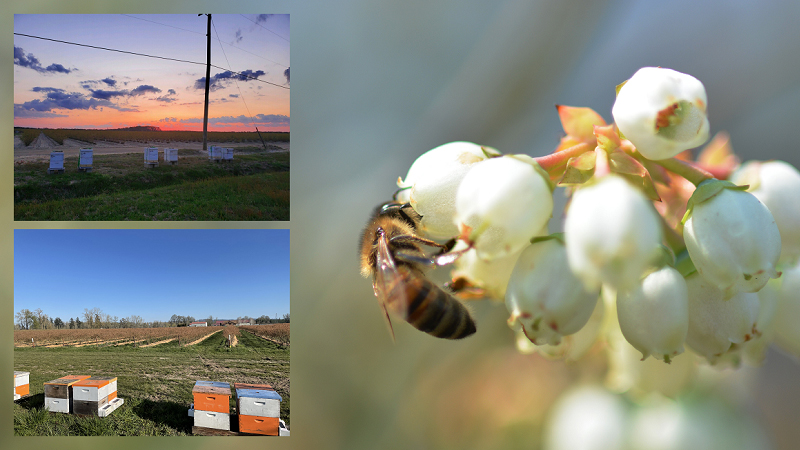Florida Growers Gather To Take On Big Issues

The Florida Fruit & Vegetable Association (FFVA) hosted its 70th Annual Convention in Amelia Island tackling the hot topics facing growers across the state during special Issues Forum panel discussions. The event draws a cross-section of specialty crop producers and allied industry.
Labor ranks high among growers’ concerns these days as a comprehensive immigration reform package seems stalled in Congress. After passing through the Senate with most of agriculture’s wish list intact, the prospects in the House seem much more challenging.
Chuck Conner, National Council of Farmer Cooperatives, credited strong provisions for agriculture on the work of the Ag Workforce Coalition (AWC), which FFVA is an active member. “The AWC was designed to build unity (on the issue of farm labor) and have agriculture speak with one voice in the reform effort,” he said.
Crowd tuned in for FFVA’s Labor Forum this afternoon. pic.twitter.com/JY6qdjWat1
— Frank Florida Grower (@FrankFLG) September 23, 2013
https://platform.twitter.com/widgets.js
Conner noted the House is very different from the Senate and its reform package has some significant flaws when it comes to ag provisions. The hope is the “House just passes something,” he said. Then agricultural needs could be addressed and corrected in conference.
Realistically, time is running out on this latest attempt for immigration reform with only a few more windows of opportunity to see passage. Conner said by the time the President’s State Of The Union Speech rolls around in January, those windows will close.
Chuck Conner says if immigration reform doesn’t happen before State Of The Union, we are in election cycle #noreform
— Frank Florida Grower (@FrankFLG) September 23, 2013
https://platform.twitter.com/widgets.js
“After the speech, we are basically in the midterm election cycle,” he said. “And, we all know comprehensive reform doesn’t happen in election cycles.”
Attorney Monte Lake, CJ Lake LLC, said expect more of the same if reform fails. He said Department of Labor and Immigration and Customs Enforcement actions and fines will continue at record levels. E-Verify is inevitable, which only heightens the need for a workable ag visa program.
Affordable Care Act Looms Large
Surprise! IRS simplification of ACA employer mandate tax rules are NOT simple at all. Who would have guessed it? #FFVA2013
— Frank Florida Grower (@FrankFLG) September 23, 2013
https://platform.twitter.com/widgets.js
Blumling’s biggest advice was prepare now despite the President’s delay of the “employer mandate” by one year to 2015. He said the wheels of the massive and complicated law are already turning and its implications will be felt by all.
In 2014, Blumling advised growers to determine whether they are subject to the “pay or play” provisions of the law. This involves the 50 or more full-time employees test, which would mandate that employers offer health coverage to their employees. For those well less than or more than 50 employees, the test is simple. But, for those on the bubble, it gets more complicated when you calculate “part-time equivalents” and the seasonal workforce exceptions.
Blumling: Time and again, I’ve seen clients shocked by the increased costs they will face under the ACA #FFVA2013
— Frank Florida Grower (@FrankFLG) September 23, 2013
https://platform.twitter.com/widgets.js
Those growers who have large seasonal crews for tasks like harvest also need to see how this affects their 50 or more employees test. If those crews work for more than 120 days per year, they would not be considered seasonal and subject to ACA provisions.
Comment On Food Safety Now
A panel made up of FDA and USDA representatives provided an update on two produce food safety rules that are now posted by the federal government for review and comment by stakeholders. The resounding call from panel participants was to read the rules, and more importantly, comment on them with specific, “real-life” examples how they would impact an individual’s farm.
On the one hand growers are encouraged to reuse surface water. On the other hand food safety regs frown on this water. #FFVA2013
— Frank Florida Grower (@FrankFLG) September 24, 2013
https://platform.twitter.com/widgets.js
Dr. Martha Roberts, UF/IFAS, moderated the panel and said it is time for growers to step up and make their voice heard. She said as of late September, 1,064 comments have been made on the produce food safety rules. Of those comments, 1,030 have come from consumers, which illustrates the dire need for grower representation in the process.
The comment period closes Nov. 15. Growers can read both produce food safety rules and comment at www.regulations.gov.










